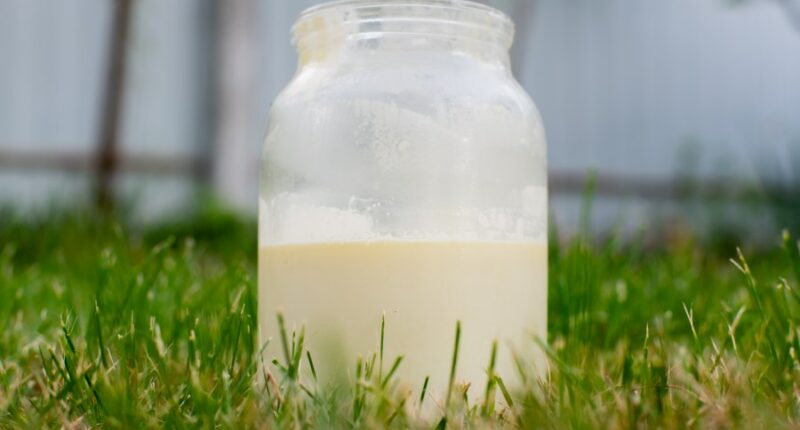Share this @internewscast.com

TAMPA, Fla. (WFLA) — Over 20 people fell ill from consuming raw milk sold in Florida, according to a bulletin from the Florida Department of Health.
The FDH bulletin, which provided an update on raw milk availability in northeast and Central Florida, reported that there have been 21 cases of people falling ill from Campylobacter and Shiga toxin-producing E. coli.
The illnesses have been linked to the consumption of raw milk from “a particular” farm, though the bulletin did not disclose the farm’s name. Six of these cases include children under the age of 10.
Health officials said out of the 21 cases, seven have resulted in hospitalizations, and at least two have suffered “severe complications.”
“STEC bacteria in its most severe form can result in hemolytic uremic syndrome (HUS), characterized by hemolysis and kidney failure, which is of particular concern for children,” the bulletin stated. “Groups at higher risk for severe illness include infants and young children, pregnant women, elderly individuals, and those with weakened immune systems.”
What is raw milk? Why is it dangerous?
Raw milk is milk from sheep, cows, goats, or any animal that has not undergone pasteurization. Pasteurization involves mildly heating milk or other packaged food products to help eliminate harmful bacteria.
Since raw milk does not go through this process, it can harbor dangerous bacteria that can cause diseases like listeriosis, typhoid fever, tuberculosis, diphtheria, Q fever, and brucellosis, as stated by the USDA.
Although some raw milk advocates claim it is healthier and safer, science does not support this view, as pasteurization doesn’t diminish milk’s nutritional value.
Common myths include that raw milk eliminates pathogens on its own, which is false, and that pasteurized milk causes lactose intolerance.
In the context of that second myth, the ability to digest lactose is actually a mutation that is only present in 35% of the human population, mostly those of European descent. In reality, most humans lose the ability to digest milk as they grow, which was the default human condition until the mutation appeared between 2,000 and 20,000 years ago.
Those with milk allergies will suffer symptoms whether they drink raw or pasteurized milk due to the proteins inside the product.
According to the FDH, raw milk can only be sold in the state of Florida for pet or animal consumption, and raw milk products must be labeled “for animal consumption only.”
Health experts have stated that raw milk marketed for pets and animals “IS NOT safe for people to drink.”










